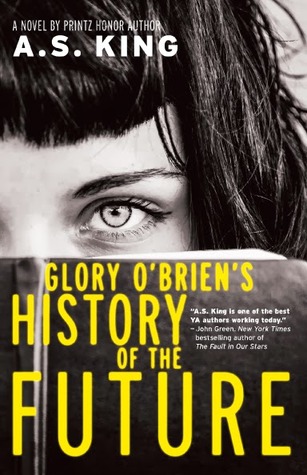Glory doesn't have much going for her. Her mother died of suicide when Glory was 4. Her dad has been dead inside ever since. Glory has one friend--Ellie, a boy-crazy girl growing up in the cult next door, on land that belongs to Glory's dead mother. The only thing she really gets into is taking photographs. She uses the zone system, employed by Ansel Adams--and her mom, Darla O'Brien. King employs photographic imagery and technique to zone us into Glory's psyche.
By shooting the darkest areas three zones lighter, you turned a black, lifeless max black zone 0 into a zone 3.
I think, in life, most of us did this all the time.
You essentially called the woman in the oven "unhappy." You called her frustrated. And you called the family who was left over, "grieving." You called them "hanging in there." You called them "dealing with it pretty well."
Glory is seen to be "dealing with it pretty well" in that no one ever asks her, and her dead mother is never discussed. And yet, to Glory, her mother is everywhere.
I watched cloud after cloud go by and saw each one as an oven.
Glory and Elly have a "lifeless max black" adventure when they do something twisted and are rewarded by being able (forced) to see everyone's past and future. There are some things they see in common, but it is mostly Glory who sees a future war that seems entirely plausible right about now. A douchey politician finds a loophole in the pay equity act--making it illegal for women to work. Bad things ensue and a fight is fought. In the future. Despite what Glory sees, or maybe because of it, she observes to Ellie
"I am no one special. You are no one special. Can you handle that? I said. "Most people can't handle it."
That was a meaningful passage to me. I think a lot about how our lives are ultimately nothing. I believe that, and I also believe we all need to be the best people we can, and I secretly really want to be special.
I love how each short chapter is named for one phrase within it. The passage I quoted is from "Most people can't handle it."
Ugh, some of her future shit is so...
The Fathers Count Law will be lauded by lawmakers who feel that America has become a welfare state for women who weren't smart enough to use birth control, even though the same lawmakers are on record being against birth control.
The novel is described as feminist. While it predicts a woman-hating future, I'm not sure if I'd call it explicitly, deliberately feminist. I'm not saying it isn't feminist, either. I think it's a story of a struggling girl woman living in the world as it is now and where it's headed.
